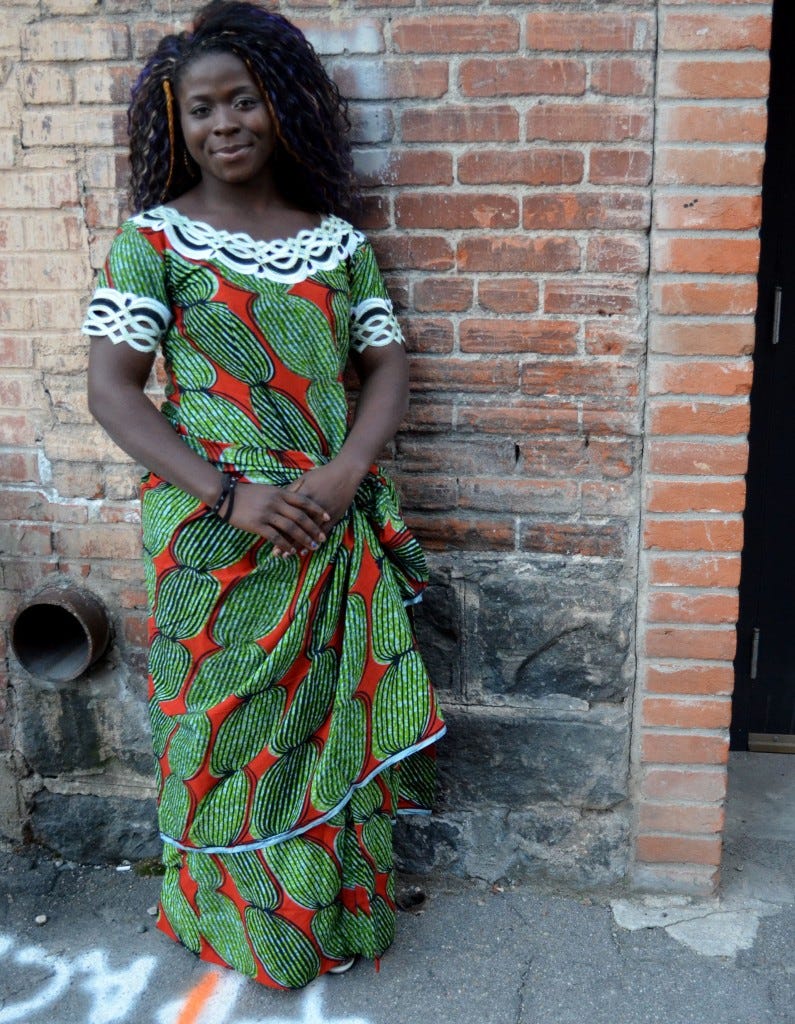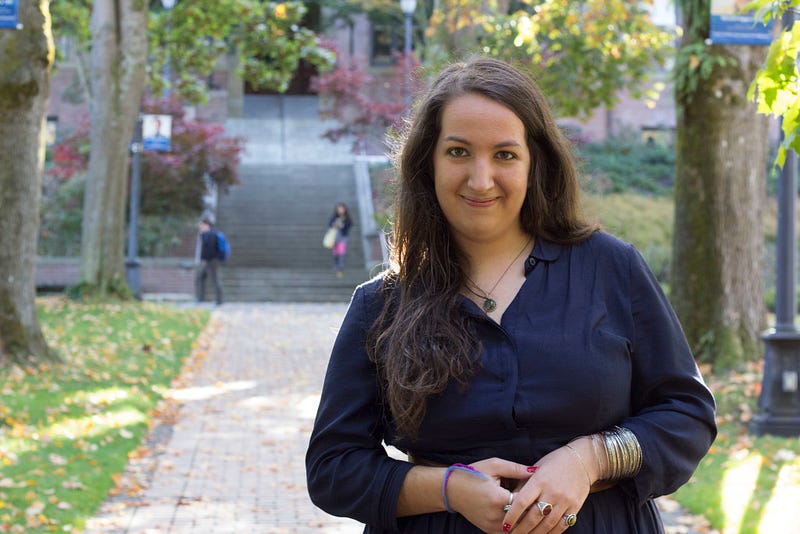In a Big Country
An Idaho nonprofit helps refugees maintain their cultures while surrounded by new ones
STORY BY STEPHANIE ROLOFF | PHOTOS BY GENEVIEVE CARRILLO | PHOTOS COURTESY OF JO KARR
(Above) Jo Karr came from West Africa to the U.S. with her mother and siblings in 1993 searching for a better future without fear of disease and war. Now, Karr is studying at the College of Western Idaho in Boise and pursuing a degree in teaching English as a second language. Photo courtesy of Jo Karr
Jo Karr was 15-years-old getting on the city bus one day after school to go home. After hours of note-taking in class, she put headphones on to get lost in the music. There were seats available, but after sitting all day in school she wanted to stand. A Caucasian woman got on the bus a few stops later and approached Jo.
“Excuse me,” the woman said. She heard the woman over the music, but took a second taking off her headphones to hear her better.
In that second Jo took to reply, the woman became furious.
“Damn refugees!,” she said to Jo. If you can’t speak English why are you here?”
“Is she being serious right now?” Jo thought.
Parts of Jo wanted yell back at the woman, but a bigger part, a stronger part, wanted to prove her wrong.
In a polite and calm manner Jo responded, “Excuse me ma’am, would you like to sit here?”
The look of deep regret on that woman’s face will be one Jo never forgets, she says.
Jo came from West Africa to Boise, Idaho in 2003 as a refugee with her family. Jo was 10-years-old when her mother decided to bring their family to U.S. She wanted her children to have a better future, one without fear of disease or war and with the hope of an education.
Upon arriving their vision of a glorious America began to fade. As Jo and her family settled into this new land and new culture, they realized America wasn’t what they expected.
A refugee, as defined by the U.S. Dept. of Homeland Security, is a person who is unable or unwilling to return to their country of nationality because of persecution or fear of persecution based on race, religion, nationality, social group or political opinion.
Idaho Office for Refugees reported that Idaho was designated a Refugee Resettlement Community by the U.S. State Department in 1975.The numbers of refugees there have increased annually for the past two decades. President Obama has authorized a ceiling of allowing 70,000 refugees each year nationwide. Refugee influx numbers have stayed consistently close to this for the last three years, according to a proposed refugee admissions report to Congress.
Jo and her family have lived in the U.S. for 12 years now. Single with five children, Jo’s mother now owns her own house and two cars. Jo is attending the College of Western Idaho and is pursuing a degree to teach English as a second language.

Jo sits with her laptop in the hallway of her school, doing a video interview for this article in between her classes. It’s almost 9 p.m. and this is the only free time she has between working, tutoring and classes. As people walk by, she fights back the tears swelling up in her eyes as she talks about the struggles her family has overcome.
“Growing up with my siblings and no dad, my mom had to be all of it for us. She was everything,” Jo says.
When she was in eighth grade, her mom was in a car accident. She was pregnant with Jo’s little brother and had to be in the hospital for a month. Karr has to catch her breath and wipe away watery eyes as these memories take her back to dark times.
“At that point, I thought that was it. I thought it was over for us.”
With just the four kids in the house, and their mom now gone, Jo says they had no idea where to turn to.
Catch! Life took Jo and her family in when they thought they had no one else. They took care of them, brought them to school and became another family until their mom recovered.
Catch! is a nonprofit organization aimed toward helping refugee families become successful in the U.S. while maintaining their culture.
Debbie Weisel and her husband, Robert, started the organization in Boise 21 years ago.
Catch! believes in the old saying, Give a man to fish and you give him food for a day. Teach a man to fish and you give him food for a lifetime, Debbie Weisel says.
The bulk of what Catch! does is provide support and build stronger long-term communities for refugee families.
This means having home-cooked meals with them, taking kids to sports practices and going to parent-teacher meetings to make sure that the teacher and refugee’s family understand each other.
One of Jo’s best friends to this day is Debbie’s daughter, Joy Weisel, who continues to help her family run Catch!.

They wanted to create a healthy outlet for kids that was reliable and constant in the neighborhoods and communities of refugees, Debbie Weisel says.
Through Catch!’s summer reading programs alone they bring up to 20 volunteers to sometimes as many as 13 different neighborhoods in Boise. The volunteers must meet with each neighborhood at least once a week for an hour. Many volunteers go beyond this minimum and stay with the kids to play soccer, have pizza parties or keep reading until they fall asleep, Joy Weisel says.
Some of Joy’s friends see how much of a workload she has to bear to take on the responsibilities of Catch! Life. They ask her why she doesn’t just take a break from it all and enjoy being a “normal” college student.
In Joy’s eyes, leaving Catch! means leaving all her closest friends behind and that isn’t an option. The stories and journeys she’s heard from people she now calls family are ingrained in her heart forever.
